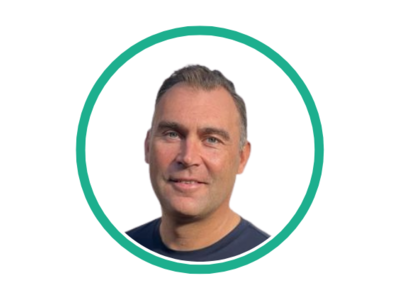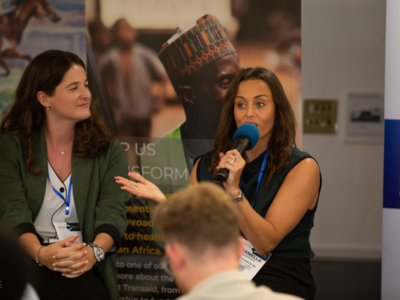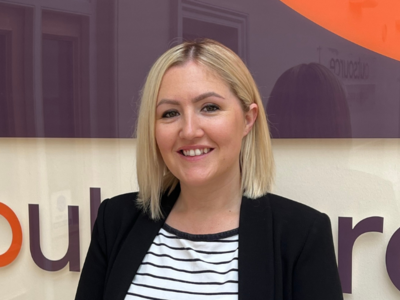We believe that everyone has the potential to be the best person for the job, regardless of age, gender, ethnicity, or disability. Which is why we have a team of Inclusion Ambassadors who are becoming subject matter experts in their special interest. They support our colleagues and our clients on Inclusion and form part of our commitment to be the UK's best inclusive recruiter.
We caught up with Nick Dettmar, our CEO and Neurodiversity Ambassador.
Hi Nick! Why did you choose to become our Neurodiversity Ambassador?
Neurodiversity and Dyslexia in particular is something that I'm quite passionate about. It's close to my heart because I have a family member who is going through the education system at the moment and they have been diagnosed with Dyslexia. I've witnessed the good work that the schools have done with them to accommodate their different style of learning but as a parent, I have a natural concern that they're going to leave school at some point and enter the working world and it might not be as easy for them to get a job compared to a neurotypical person.
One in seven people are neurodivergent. It’s estimated that in the global adult population that 10% are dyslexic, 5% are dyspraxic, 4% have ADHD, and 1-2% are autistic.
Why do you think that supporting Neurodiversity in the workplace is so important?
I’ve seen what can be achieved by harnessing neurodiversity for innovation and creativity. I think I'm in a pretty privileged position in my role at Outsource, that I can really make a difference. I want to look at what we can do to try to make it easier for neurodiverse individuals to get a job. That means we've got to make ourselves more accessible. We've got to think about how we engage with people and what we ask of them. Not everybody who has some form of neurodiversity has a diagnosis. There's a statistic out there that says all those who are neurodiverse in education, only 30% of them leave with a diagnosis. That means 70% have gone through their education system and entered the working world without knowing that they have some form of neurodiverse characteristics. In fact a lot of people only find out they're dyslexic, dyspraxic, ADHD later in life.
What have you done so far?
This year, we became proud members of the Neurodiversity in Business organisation. We've taken some steps to support clients to understand how to support neurodivergent people. Equally, we’re working with candidates to understand their needs. Our processes and practices are designed to improve the interview and onboarding experience. We also support clients in ensuring the workplace accommodates the needs of individuals.
I also attended the Neurodiversity in Business’ Conference back in March this year. It was a really insightful and inspiring day, all about building our understanding of neurodiversity and how it impacts employment and the workplace.
What can we do to support colleagues in the workplace?
To effectively support Neurodivergent people in the workplace, we firstly need to understand what Neurodiversity is.
Neurodiversity is a term used to describe a variation in normal human evolution which means some people think differently to others. Neurodiversity conditions include Autism, Attention Deficit Hyperactivity Disorder (ADHD), Dyslexia, Dyspraxia, Tourette Syndrome and complex tic disorders.
A diverse workforce consists of people from different backgrounds who have different experiences. They think differently and this often has a positive outcome on productivity. Creating a work environment where a cohort of diverse people can thrive is crucial.
What have you got planned for your role as an Ambassador?
My mission with Outsource is to go out there and find out what we can do to help people find work and help people we need to adjust for. It's our role to make ourselves as accessible as possible. I also want to help our partners by building an understanding of neurodiversity and how it impacts employment and the workplace. If you have any ideas, I'd love to hear from you.
Want to learn more about our Inclusion Ambassador Team?
Visit our Environmental, Social & Corporate Governance page for more information and a list of all of our Ambassadors.



